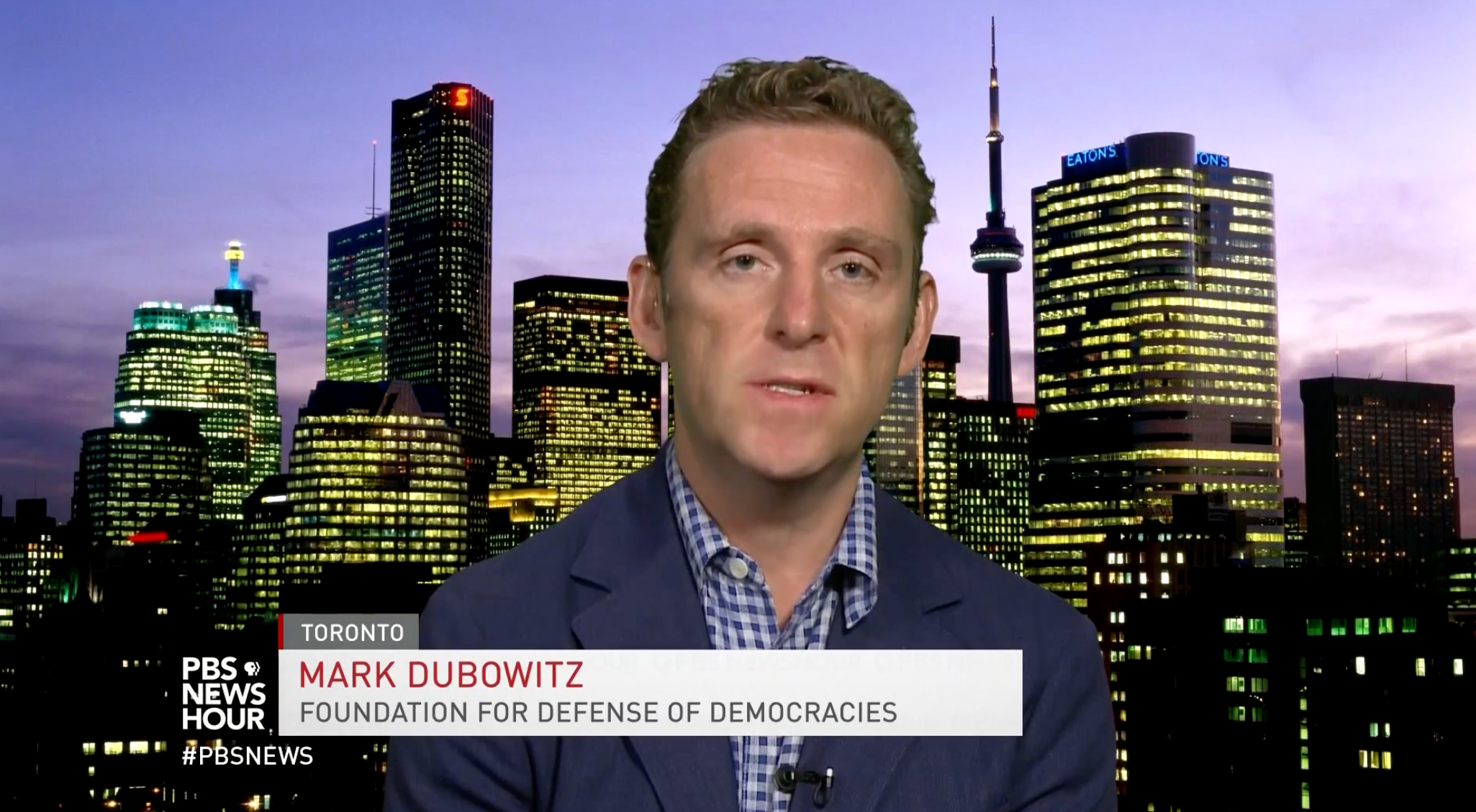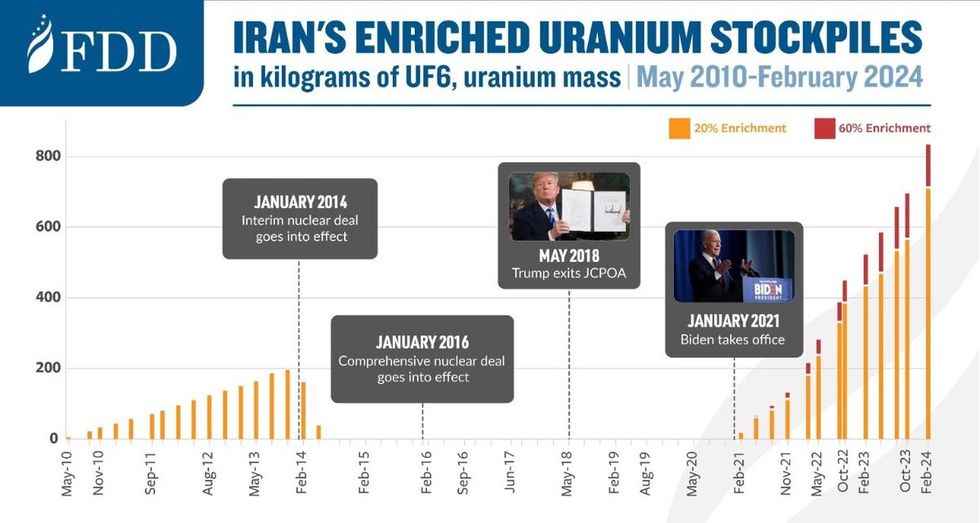Foundation for the Defense of Democracies CEO Mark Dubowitz shared a graphic on the X platform this week purporting to place blame on President Biden for Iran’s increasing stockpile of high enriched uranium — material that can be used in nuclear weapons — when in reality it’s Dubowitz, his organization and their allies in the Trump administration that are largely responsible.
“Facts are stubborn things,” Dubowitz said before showing the graphic. “Iran’s nuclear expansion has occurred under the Biden administration’s failed Iran policy of maximum concessions.”
It’s unclear what “maximum concessions” Dubowitz is referring to, but facts are indeed stubborn things and the reality is that this graphic is nowhere near close to providing the full picture of how we got to where we are today with Iran’s nuclear program. In fact, Iran’s nuclear expansion actually began before Biden took office after President Trump withdrew from the Iran deal (or JCPOA, as the nuclear agreement is known) in 2018. While Iran’s program has grown since Biden took office in the absence of any re-agreed upon limits, it would still largely be frozen where it was in 2015 had Trump remained in the deal.
So let’s look at the stubborn facts: Under the terms of the 2015 deal, Iran limited its uranium enrichment purification to 3.6% — or the amount needed for civilian energy purposes — and capped its stockpile of low enriched uranium to no more than 300 kg. In July 2019, or approximately one year after Trump withdrew from the JCPOA, Iran began to increase its stockpile of low enriched uranium above that 300 kg limit and announced that it was enriching to 4.5%, or slightly closer to the 90% needed for nuclear weapons. Dubowitz’s graph does not provide this information.
In other words, “Iran’s nuclear expansion” as Dubowitz put it, began during the Trump administration’s “maximum pressure” campaign that Dubowitz and FDD played a major role in crafting. FDD also played an outsized role in pushing Trump to withdraw from the JCPOA.
So Dubowitz ignores this fact entirely and instead misleadingly focuses on Iran’s enrichment of uranium to 20% and 60% purity, or near weapons-grade. But here again, what Dubowitz’s graph doesn’t show is that Iran began enriching uranium to 20% before Biden came into office, a move the U.S. intelligence community has attributed to the assassination of a top Iranian nuclear scientist in November, 2020. After that, the U.S. Intelligence Community’s Annual Threat Assessment states, Iran “accelerated the expansion of its nuclear program [and] stated that it is no longer constrained by any JCPOA limits.”
Another stubborn fact that Dubowitz omits is that by November 2020, Iran had increased its stockpile of low enriched uranium by 12 times the limit allowed by the JCPOA and shortened its break out time — or the time that Iran would need to produce the materials for one nuclear weapon — from one year under the JCPOA terms to between three to four months.
There are a myriad other ways in which Iran expanded its nuclear program after Trump withdrew and before Biden took office, including using more advanced centrifuges to enrich uranium and other measures which you can read about here.
The bottom line is that this is another one of Dubowitz’s brazen attempts to absolve himself and his organization from the responsibility for the failures of withdrawing from the Iran nuclear deal and the subsequent “maximum pressure” campaign that failed to bring Tehran to its knees and eliminate its nuclear program (and perhaps even foment regime change).
Despite this, and the many other wildly false or misleading claims Dubowitz makes regarding Iran (and Israel), many major U.S. media outlets continue to use him as a source on these issues. Perhaps that’s why, in part, we shouldn’t be surprised that Iran is closer to a nuclear weapon than it’s ever been and U.S.-Iran tensions remain high with no sense of de-escalation in sight.
- How a misleading report on Iran from a hawkish 'think tank' made its way to Trump administration talking points ›
- Hawks hurl lies over Iran prisoner swap but can't hide this truth ›
- Hardline think tank despises Iran above everything else — and that's dangerous ›
- Why it’s a bad idea to ‘debate’ FDD CEO Mark Dubowitz ›

















